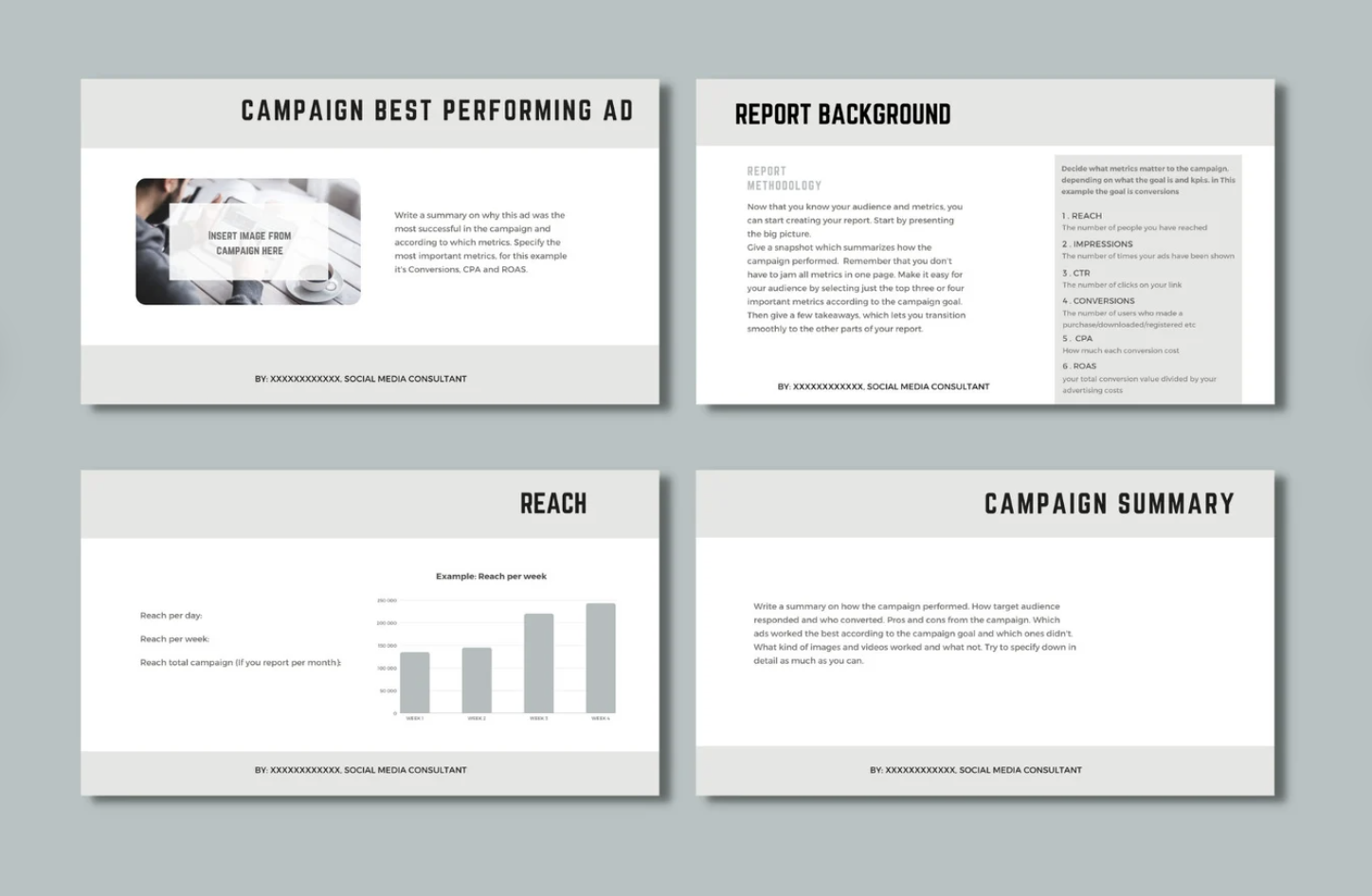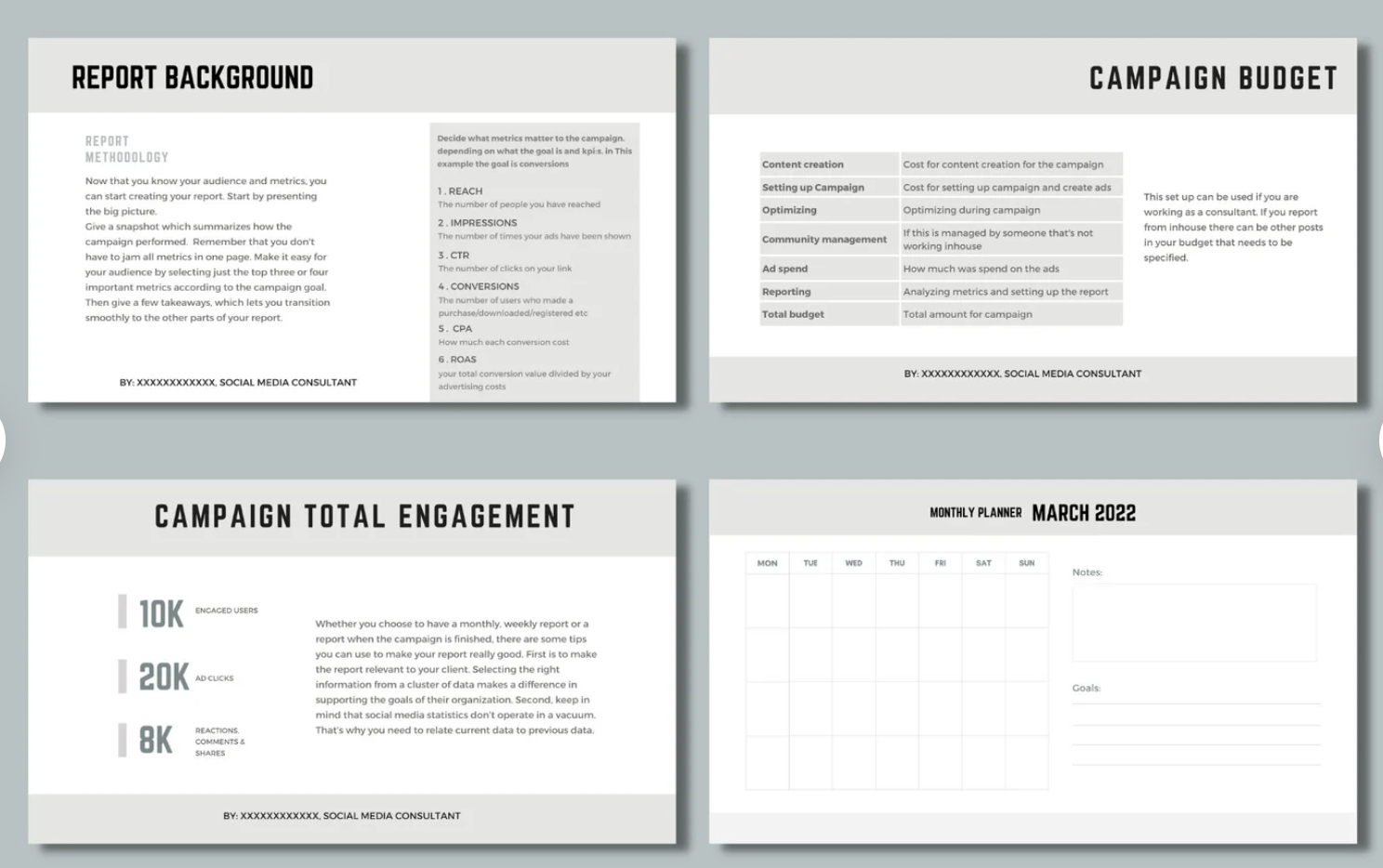28 Real Estate Marketing Ideas: Strategies & Plans for Developers
Project Luciana - image courtesy of Black Haus
When marketing homes, hotels and other properties, it’s fundamental for real estate developers to have a solid real estate marketing plan. A key element to this plan is using eye-catching media and real estate marketing strategies that are both creative and understandable to reach a target audience.
These days real estate professionals have a unique opportunity to engage their audience through a variety of online mediums. In fact, according to NAR (National Association of Realtors), social media posts, blog posts, company websites and email marketing are some of the best ways to generate leads.
Utilizing these elements alongside high quality photography, videography, drone footage and a selection of essential tech tools for SEO, CRO and more, can help a real estate business track marketing progress while making adjustments to better connect with potential clients.
In this article, we’ll look at key real estate marketing strategies examples to engage your target market with compelling and comprehensive messaging. These real estate advertising ideas will promote brand awareness, generate a buzz around your properties and new leads that display genuine interest.
Take a look at our list of marketing strategy examples for real estate developers below to gain inspiration for your business.
Image courtesy of K-Studio
Web Design and Real Estate Project Marketing
#1 Capture Your Audience’s Attention
Your website is the hub of your marketing ideas for real estate, so how do you maximize its potential? A strong website presence is essential for any business and even more so for your real estate development marketing plan. Your website is likely one of the first places potential buyers will see when they want to learn more about you and your properties.
Having a great website isn’t just about looking good, it’s about standing out - capturing your audience’s attention and conveying the unique attributes of your business. Try to incorporate the latest real estate marketing ideas and trends onto your web pages by adding your own special twist. One way to do this is focusing on what makes your properties different from others on the market and presenting the information in a novel, but engaging format.
#2 Make Your Site Aesthetically Pleasing
Your website design should be professional, modern and deliver clear information with every page scroll and click. The content should be well-written and informative, complemented by high quality photos, virtual tours and videos that will bring your properties to life.
#3 Offer a Great User Experience
Make browsing your properties a positive experience for potential clients with easy to navigate pages, and ensure your website is optimized for tablets and mobile phones. A recent study suggests that a whopping 98.1% of visitors are using their mobile phones to access the internet in 2024.
#4 Maximize Search Engine Optimization
Another core element of marketing in real estate development is search engine optimization (SEO). This is how your site can rank higher on search engine results pages (SERPs) like Google results. Improving your SEO might involve speeding up loading times for your website or optimizing content to include specific keywords, making those web pages more likely to be seen by potential customers.
#5 Create Clear Call-to-Action Messages
When creating a website real estate development marketing strategy, be sure to include a clear message that makes it easy for potential buyers to get in touch. Placing your contact information on every webpage with a strong call-to-action (CTA) message will encourage people to reach out. The best messages are to the point.
Image courtesy of Georg Roske
Social Media Strategies for Real Estate Marketing
#6 Study Social Media User Data
In the digital era, a key part of any real estate marketing strategy is to utilize the myriad social media platforms to enhance client reach. According to a Statista survey, in 2024, over five billion people are using social media worldwide, making Instagram, TikTok, Facebook, Twitter (X) and more, prime sites for your social media marketing campaign.
When generating a sample marketing plan for real estate development, consider becoming active on the platforms that your demographic uses. You can uncover data on social media management tools such as Hubspot or Hootsuite Insights which reports platform popularity among certain demographics. When you know where your audience is most active, you can then create real estate marketing ideas that engage those platforms.
#7 Make Your Listing Stand Out
There are many marketing strategies for real estate companies to use on social media, but one key factor is to ensure that you reinforce your branding at every available opportunity. A great way to do this is by being consistent with your logo, color palettes and typography. You can also create immersive video ads, virtual staging photography, and even use drone footage to take aerial views of the property and local area.
For inspiration, look to Villa Bella Canggu’s real estate instagram account. The visual branding is strong as every photo uses colors from a central palette and the images are engaging, speaking to prospective clients.
#8 Implement Your Real Estate Sales Strategy
Most real estate marketing techniques that work well include using social media platforms. Facebook, Twitter (X) and Instagram are great places to research and implement your marketing strategy in real estate. You can think of these platforms as virtual real estate agents - part of your marketing efforts that target potential customers with ads for your properties.
Gundari Resort, Greece & image courtesy of Block722
Email Marketing for Real Estate Developers
#9 Build Your Email List
One of the best real estate development advertising strategies is email marketing. It’s a great way to stay in touch with prospective customers as it builds trust and keeps them updated on your latest property listings. When building up your email list and marketing plan for real estate, try to add the addresses of clients already viewing properties in the local market. To source this information, you can purchase the data in batches or integrate sign-up tools on your websites that allow users to voluntarily offer their information.
#10 Send out Monthly Newsletters
When you have a list of email addresses, make a marketing plan for real estate project promotions and send out monthly newsletters. In these regular communications, you can include the latest information on your property developments and listings, open houses and detail any promotions or discounts that you’re running.
#11 Track Your Click-Through-Rates
A nice feature of email marketing for a real estate company and developers is having the ability to track how many people open or click through each email. This information gives you an idea as to how effective your email marketing campaigns are and if they need to be modified to improve engagement.
Branding for Real Estate Sales Marketing
#12 Choose a Recognizable Logo
A logo is the visual representation of your business. It conveys the personality, values and mission of your development, hotel or real estate business. A logo should be simple, recognizable and easy to remember, and reiterating your logo on all of your materials will help it stick in consumers’ minds.
A well-designed logo helps to reinforce your brand image and its key to creating a memorable real estate developer marketing strategy. One such example is Baccarat Residences in Miami. The development website uses their distinctive logo on each page so that their branding is communicated seamlessly.
#13 Finding the Right Color Scheme
When considering marketing for real estate developments, brand colors should be high on your list. Adhering to a consistent color scheme across web pages and social media platforms allows potential buyers to recognize your business, which in turn raises brand awareness. However, it’s not as simple as just choosing random colors - each one has a different meaning and finding the right combination to align with your target audience and the products you are selling is key. For example, luxury real estate developers might use black or white to represent an elegant and classic look and they can pair these tones with silver or gold to promote more opulent, upscale properties.
You can learn more about luxury real estate marketing here!
#14 Selecting a Suitable Font
Your choice of font should always resonate with your brand, while being easy and clear to read - whether it’s on a business card, website or a newsletter. For example, a young, hip millennial or Gen Z audience may resonate with a modern font, while a more traditional, Gen X or Boomer audience might prefer classic serif fonts. If your target audience spans generations, choose a font that creates balance and will appeal to the majority of clientele.
Image courtesy of graphic designer Anica van der Merwe for Hotel Luce, Italy
#15 Getting Your Tone of Voice Right
A brand tone of voice can evoke the identity of your business and it helps to create an emotional connection with your target audience - essential for building brand loyalty. A consistent tone of voice (TOV) across your digital and print materials helps your target audience understand you as a business. It's an important element for your marketing strategy real estate.
#16 Add Your Business Details
Be sure to include your website, email and phone details throughout your marketing collateral, so that it’s convenient for potential customers to reach out when your materials attract their attention.
Image courtesy of Plann
SEO and Content Marketing
#17 Use Keyword Rich Titles and Descriptions
Finding the best marketing strategy for real estate developers is no easy task, but one tool that works to enhance your online presence is SEO or Search Engine Optimization. This is a process of modifying your website so that it ranks higher on search engines’ results than its competitors. One of the top marketing techniques for real estate agents is to use keyword rich titles and descriptions to highlight properties.
For example if your real estate development is in the Caribbean, use a location-based keyword such as “Residences in Caribbean” like Montage Cay Residences does. Another way to increase rankings is to use title tags and meta descriptions. Both can help your project appear in search results and shared page summaries. Ideally, a title should be no more than 60 characters, while a meta description would be around 150 characters in length. You can use tools like Google Adwords Keyword Planner to help you find the perfect keywords to align with your business.
#18 Create High Quality Content
SEO is a complex process, often involving professional consultation to tailor it to your marketing strategy for real estate business, but there are several things you can do to improve your website ranking. Part of any marketing strategy for a real estate company or developer is to create high quality content. The more original and informative your social media posts, blog posts, infographics and short videos are, the higher it will rank on a search engine.
For instance, Google prioritizes website and blog post content based on E-E-A-T, Experience, Expertise, Authoritativeness and Trustworthiness. These are used to evaluate your content in an SEO context. In short - the more your content speaks to your company’s trustworthiness, reputation and expertise, the higher it will rank.
Image courtesy of The Somewhere Studio
#19 Optimize Your Website to be Mobile Compatible
There’s nothing more frustrating than opening a webpage on a mobile device and not being able to read it because the page is not properly optimized. Mobile browsing is now surpassing desktop traffic, with 99% of millennials and 90% of boomers starting their property searches online. Therefore, it’s essential to ensure that your website aligns with all types of devices. In addition, Google and other search engines prioritize mobile-friendly websites in search results and this helps to drive more organic traffic.
#20 Build Backlinks to Your Website
Another way to improve SEO is to build backlinks from well respected websites. The number and quality of the websites you choose to build backlinks with is key. The more authoritative and reputable the website, the more your own website will be boosted in the SERPs (Search Engine Results Pages). The action of backlinking can also help to drive traffic from your target audience to your property development websites, increasing your chances of generating quality leads and gaining potential sales.
Image courtesy of Mikael Blomkvist
Utilizing Conversion Rate Optimisation (CRO)
#21 - A/B Testing
CRO, or Conversion Rate Optimization is all about improving your website and it’s often how marketing ideas for real estate developers are born. Unlike SEO, which prioritizes improving search engine rankings, CRO focuses on increasing the percentage of visitors who take action.
A key strategy for CRO real estate development sales and marketing is A/B testing. This involves testing two different options on a webpage to see which one performs better. You can do this by sending different headlines and images to two test groups and comparing the results. Another way to optimize your conversions is to test out the placement of your call-to-action buttons on your website. For inspiration, look to Number One Ballsbridge. The company website places its CTA (register here) button on the first screen of the website to help increase clicks.
#22 Improve Real Estate Business Marketing Strategies with User Testing
User testing involves asking individuals to test out your website while you observe how they interact with it. You can use a site like UserTesting.com to find participants willing to take part in the tests.
#23 Use Heat Mapping on Your Website
Heat Mapping tools can also help with your real estate marketing strategy. The tools track where users are clicking on your website, showing you which areas of your website get the most attention. You can use tools such as Crazy Egg to see how it works.
#24 Build a Sales Funnel
One of the best real estate marketing techniques is to build a funnel. The ultimate goal of a funnel is to take potential clients on a journey through your marketing campaign, ending with a sale. By creating a funnel, you can track the progress of customers and discover where they tend to lose interest in the process. This will help you to adjust your real estate sales strategies accordingly to convert more people into purchasing properties.
A great example of a sales funnel being used for marketing real estate development is shown on the Muse Residences Miami website.
Like an actual funnel, the process starts with a wide opening - this focuses on raising brand awareness and describing the building as well as a property summary.
The funnel then moves to a narrower section, capturing the interest of viewers by displaying amenities, features, images of the units and more.
As website visitors continue down the page, they move through the funnel to consideration, where the website displays full prices and floor plans.
Finally, a conversion opportunity is presented with a CTA button, where the client can take next steps. This can include scheduling a presentation via Zoom or in person or proceeding to reserve a property.
Image courtesy of Slide Process
Maximizing Paid Advertising (PPC) in Real Estate Marketing Plans
#25 - Creating Ad Groups for Each of Your Properties
You can use paid ads to match your content with your target demographic. For a minimal fee, this paid service actively searches for potential customers who aren’t necessarily looking up your properties, making it an excellent way to generate leads. The paid ads service allows your business to target people who are interested in specific types of properties within certain geographical areas and price ranges. Conveniently, it’s also possible to manage more than one ad in the same campaign.
#26 Target Keywords that are Relevant to Your Properties
You can use tools like Google AdWords Keyword Planner to help you find the perfect keywords.The right keywords will help you target the audience that will be most interested in your property offerings.
#27 Create Ads Relevant to Your Target Keywords
When creating paid ads, be sure to make them clear and concise and always include a compelling call-to-action (CTA). Also identify the primary phrases and keywords that potential clients would use to discover your properties and services then see which words perform the best in search results.
#28 Monitoring and Adjusting Your Results
By keeping track of your leads and conversions, you can begin to see how effective each paid ad for your property development is, and you can adjust them accordingly to suit your needs and budget.
We can get your real estate marketing moving!
At Proven Partners, we specialize in real estate marketing. We can help you develop a real estate development marketing strategy that is sure to generate leads and grow your business.
We offer a wide range of services, including strategic branding, website design, SEO, content marketing and social media marketing.
If you’re looking for help with your real estate marketing strategies, we can provide you with the tools and resources you need to succeed.
Contact Proven Partners today to learn more about our services and how we can help you grow your business.


















